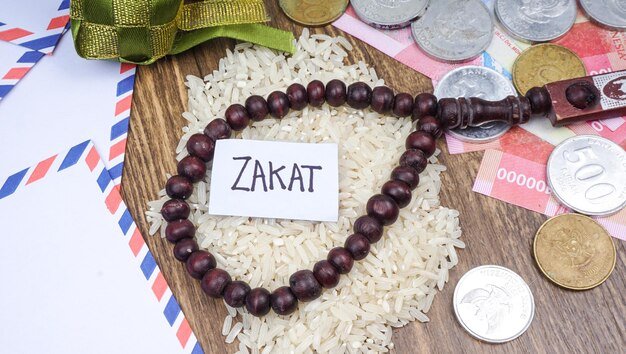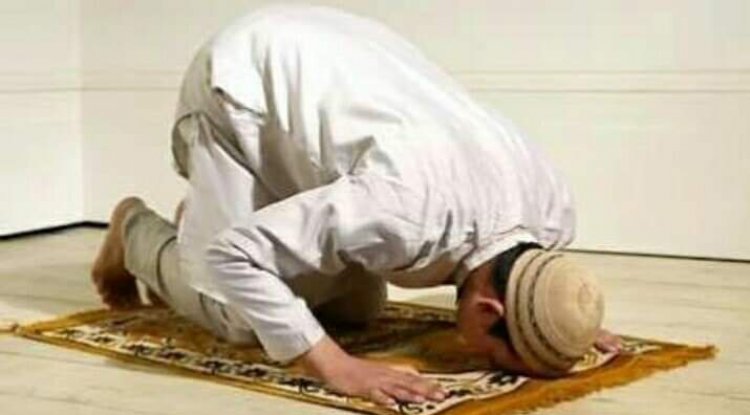The importance of zakat or obligatory charity in islam
Zakat moulds the individual into responsible and caring persons. It inculcates the spirit of goodwill, cooperation and brotherhood in upholding social solidarity in the society. It is very much cleared and proved that the System of Zakat plays effective and successful role in developing the social life and moral values of Muslim society. It must be clear that Zakat is a portion of a charity system of Islam, otherwise, there is a good range of ‘Sadaqat’ i,e those alms which are not compulsory. They can play miracles if properly institutionalized by the state.

Zakat/ Alms-giving/ Obligatory Charity
The literal meaning of Zakat is:
Piety, To increase, To purify
Zakat is the fourth pillar of Islam
It became obligatory in the 2nd year of hijrah.
It is an act of worship which benefits mankind.
This financial worship is an obligation for every sane, mature and free Muslim who possesses property equal to or exceeding a laid down minimum, at the prescribed rate a portion of it to deserving poor and needy people.
Zakat is payable on wealth which remains in the possession of a believer, for a period of one year, without interruption, and whose value has reached a certain level, known as nisab.
Importance
Its importance can be judged from the fact that it is mentioned 32 times in the Qur’an.
"(O believers) establish the prayers and pay the Zakat." (Baqra 110)
"There are the people in whose wealth there is a known share of the needy and the poor." (Al mu’arj 24 – 25)
"(O Muhammad) Take alms out of their wealth (which they have brought) so that you may purify them (hearts)." (Taubah 103)
Hazrat Abu Bakar said (to those who refused to pay zakat);
" Whoever make a distinction between Namaz and Zakat, by God I’ll surely fight against them."
The Holy Quran has shown resentment on not paying the Zakat:
And those (with greed) hoard gold and silver, and spend it not in the way of Allah, so give to them the news of a painful punishment. On the day when it (gold and silver) will be made hot in the fire of Hell, and their foreheads and their sides, and their backs shall be branded there with (and it shall be said to them). This is what you hoarded for yourself; so (now) taste what you used to hoard. (Taubah 34 – 35)
Nisab
It is seven and half tola gold, or fifty-two and half tola silver, or currency equivalent to that, or business goods after deducting the needs of the owner, and after passing of one year, the fortieth part, or two and half percent is to be paid as Zakat.
Rate of Zakat
It is calculated at two and a half percent.
Zakat is not levied on buildings, shops or total capital but on savings of the income that may have been generated from them. Zakat is not payable on precious stones and immovable property or machinery.
Gold 87.48 grams levied at two and a half percent
Cattle 30 to 39 1 goat of a year old
Mines one fifth of the produce
Distribution of Zakat/ Masarif/ Recipients of Zakat
Masarif is the plural of the Masraf., which means the head and the place of utilization. It means the people whom Zakat is given. The Holy Quran itself has mentioned the uses of Zakat.
Zakat-ul-Fitr
Sadaqa-tul-Fitr is a duty, which is wajib on all Muslims as long as they have the means to do it. The head of the house is meant to pay the required amount for other members of the family. Its payment is encouraged so as to provide those who fasted with a means of making up for errors during the month of Ramadan and it also provides means with which the poor can celebrate the festival along with the rest of the Muslim community.
People don’t deserve Zakat
To pay zakat is not lawful to one’s son, daughter or to their children. So the children cannot pay Zakat to their father, grandfather etc.
Husband and wife cannot pay zakat to each other.
Its not good to pay zakat to a non muslim and a muslim who apart from his house, house hold, horse, (cycle etc.) has the things valuing more than nisab.
Descendants of the Holy Prophet do not qualify for zakat. Poor could be helped by other means so that their honor and dignity remain intact.
It is necessary to specify anybody honor of zakat. Therefore, it is not lawful to spend zakat on the construction of a mosque, and coffins of a dead etc.
As far as possible, zakat should be distributed among the relatives, neighbors and those who are living around. For no purpose it is no lawful to spend zakat to far flung areas.
Benefits of Zakat:
Zakat is the fourth pillar of Islam and its benefits, both personal and communal, are many. Its benefits could be divided into three basic types:
Spiritual Benefits
• The payment of zakat purifies the heart of the giver of love of wealth, greed and miserliness
• It inculcates the love of God;
• It is a blessing for both the giver and the receiver;
• Zakat expiates the sins of a person;
Social Benefits
It leads to equal distribution of wealth in society
It prevents accumulation of wealth in a few hands;
It removes the gap between the rich and the poor;
Eliminates the class system from the society;
Less corruption;
It fosters goodwill, brotherhood and equality in the community.
Economic Benefits
Zakat stimulates investment and discourages hoarding, if people do not invest their wealth it will gradually get consumed by zakat.
It creates job opportunities and thus eliminates poverty from the society.
It is an effective way to keep wealth in circulation.
It eliminates interest(riba) system from our financial system.
Benefits of Zakat/ Alms/ Obligatory Charity
The payment of zakat purifies the heart of the giver of love of wealth, greed and miserliness and inculcates the love of God; it is a blessing for both the giver and the receiver; zakat expiates the sins of a person; it leads to equal distribution of wealth in society and prevents accumulation of wealth in a few hands; it fosters goodwill, brotherhood and equality in the community; zakat stimulates investment and discourages hoarding, if people do not invest their wealth it will gradually get consumed by zakat. Hence it is an effective way to keep wealth in circulation.
Benefits other than those given above could be given by the candidates.
Zakat purifies the giver’s soul and take him closer to Allah, while on the other, produces in him feelings of love, brotherhood and generosity towards humanity.
Zakat purifies the soul of the giver from selfishness and greed and cleans his wealth from a portion specified for the unfortunate.
Other important purpose of the imposition of Zakat is that wealth should spread in all, be shared by all, and there should not be any monopoly of an individual or group. Refering to this purpose the Holy Quraan says,
"……….. In order that wealth may not circulate only among those of you who are rich." (Alhashar 7)
The Holy Prophet clarified the purpose of Zakat at the time of appointing Hazrat Ma’az, the Governor of Yemen:
"(O Ma’aaz) Collect the Zakat from the rich and pay it to those of them who needy."
By Zakat the wealth does not accumulate in the hands of the rich, but the poor also get the benefits of it. As the result of it the rich become sympathetic with the poor and the poor start loving the rich. In this way the mutual communal rivalry is not created and an economic balance is maintained in a Muslim nation. Therefore, Zakat eliminates the social evils and mutual disturbance.
The Importance of Viable Economy for a Stable Social System:
A human society cannot develop or prosper until and unless it has a strong and viable economy. The poor and the destitute people can fall easy prey to a lot of social evils The Impact of Zakat on Social life of Muslim Society in order to make the two ends meet. Whereas, financially stable people have the courage to stand against social pressure. Some of the social problems resulting from weak economic conditions may be counted as follows:
1. Illiteracy
The poor families cannot educate their children properly, who, accordingly, resort to child labour or fall in the hands of mischief mongers. Thus, they create many problems for the area they live in.
2. Moral Bankruptcy
The poor and the uneducated community cannot maintain the strong footing of morality. These are, no doubt, the moral values which inculcate mutual respect, cooperation and sympathy among the members of society. Such noble traditions and great human standards cannot be expected from the illiterate people.
3. Increase in Crime Rate
Economic recession leads society towards bleak law and order situation. The poor people turn to theft, robbery and the like in order to meet their economic demands. Sometimes, the same simmering feelings of deprivation cause bloodshed or even political upheavals.
Social Impact of Zakat
Islam concentrates on the reform of individuals, who are constituents of a society. Usually all the Islamic commands start from the individual and travels to the establishment of an ideal community of the people. It is quite a natural process of positive change. Zakat, in the same way at first builds character of an individual and then brings a lot of impacts to the society.
Individual Impact
1. Generosity:
Man is naturally greedy and his thirst for more and more material gains never satisfies. Zakat is a sort of journey from inside to the out side. He learns to come out of the race of personal interests and think for other human beings. He extends financial help to the poor and the needy. It cleanses an individual from avarice, selfishness and miserliness. The Holy Quran says”
“And whoso is saved from his own avarice such are they who are successful”
The holy Prophet (SAW) has said:
“Avoid from avarice as people before you were annihilated due to avarice(9)”
2. Sincerity of Faith”
Zakat is also called “Sadaqa” which is derived from “Sidq” which means truth. Proper calculation of assets and capital for the sake of excluding prescribed amount for the poor and the needy is an ample proof of the individual’s sincerity of faith. It also shows his complete submission to the will of almighty Allah. Because in the words of Holy Quran, it is the characteristic of the hypocrites that “they come not to worship save reluctantly”(10) Narrates Abu Zar (RA) that the Holy Prophet (SAW) said:
“They are the losers on the day of Resurrection, by the Lord of The Ka’bah” I asked “Who are they? May my Parents ransomed to you!” He said, “They are the wealthy except those who spend here and there.
3. Self-Purification
Zakat, on one hand, purifies the individual who gives Zakat from selfishness and indifference, while, on the other, it purifies those who receives Zakat from the feelings of haltered against the wealthy people. Thus, it creates love for others in the individual and saves him from self-indulgence and ego-centricity.
4. Obedience to Law
It makes an individual a responsible and obedient citizen. The Holy Quran says
“O you who believe! Obey Allah, and obey the messenger and those of you who are in authority”
Divine orders are, in a sense, a sort of training to make a person obedient to laws and thus become civilized and cultured.
5. Special financial Aid
Zakat is distinct in all other forms of charity in contemporary society, as it also seeks to relieve an insolvent from his unsettled debts. It also provides necessary financial aid for the wayfarer who unexpectedly faces financial risk regardless of being rich or poor.
Collective Impact
As usually all the Islamic commands start from the individual and travels to the establishment of an ideal community of the people. Zakat, in the same way at first builds character of an individual and then brings a lot of impacts to the society. The collective impacts of Zakat are as follows:-
1. Social Harmony and Justice
Zakat bridges the gulf between the haves and the have-nots. In capitalistic economies, we see that the wealth accumulates into a few hands and the condition of the poor further deteriorates. One of the purposes of Zakat is to avoid such social disparity. The Holy Quran Says:-
“This (Wealth) may not circulate solely among the rich from among you.”
2. Social Security
Zakat functions as a social security for all. Those who have enough money today pay for what they have. If they need money tomorrow, they will get what is necessary to help them live decently”
3. Best Check against hoarding
Zakat is not levied on the income rather on the savings and hoarded items. So the person who pays Zakat every year, prefers to invest his wealth and get it increased, lest it should dwindle year after year. In this way, the literal meaning of Zakat i.e. ‘Growth’ materializes. The Holy Quran says”
“That which you give in Zakat, seeking Allah’s countenance, has increase manifold”
This helps increase production and stimulates supply because it is redistribution of income that enhances the demand by putting more real purchasing power in the hands of the poor.
4. Circulation of Wealth
Zakat keeps wealth in circulation and thus it benefits the whole society. The holy Prophet (SAW) advised his companion Mua’az bin Jabal, while he was proceeding to Yaman “to teach them that Allah has made it obligatory for them to pay the Zakat from their property and it is to be taken from the wealthy among them and given to the poor”
Thus Zakat helps a lot in decreasing poverty. If proper Zakat system is established, the poverty will vanish away from the earth.
5. Human Brotherhood
Zakat brings the people closer to each other and ensures real brotherhood in the true sense of the word and spirit. The holy Quran has made performance of ‘Salat’ and payment of ‘Zakat’ both as pre-requisites of Islamic brotherhood. The Quran says:-
“But if they repent and establish worship and pay the poor-due (Zakat), then they are your brethren in religion”
6. Promoting self-respect
Zakat is obligatory on the wealthy people. If they pay Zakat, they are just performing their duty assigned by almighty Allah. They are not doing any favor on the poor and the destitute. Because, if they do not pay a due share, they will have to face wrath of Allah on the Doomsday. Narrates Abu Huraira (RA) that the holy Prophet (SAW) said:
“No owner of the treasure who does not pay Zakat ( would be spared) but (his hoards) would be heated in the fire of Hell and these would be made into plates and with these, his sides and his forehead would be cauterized till Allah would pronounce Judgment”
That is why the Zakt givers are themselves thankful to the receivers as they are helping to fulfill their duties. The holy Quran says”
“O you who believe! Render not vain your almsgiving by reproach and injury.”
7. Discouraging Beggary
If everyone pays Zakat from among the haves, no poor and the unfortunate would have to resort to begging. Now-a-days, we find beggary as a menace facing many societies. Islam on one hand, ordered the affluent to care about the destitute and, on the other, prohibited the poor and the needy from stretching hands before others. Narrates Abu Huraira (RA) that the holy Prophet said:-
“Whoever begs from people so as to accumulate more riches, he is asking for a live coal (fire) from Hell, so let him ask for a lot or little”
8. Peace and Prosperity
Zakat ensures social justice by bringing financial balance among various strata of society. It decreases the crime rate and terrorist inclinations among the society members. Thus the whole society strives together and achieves development and prosperity. Equal distribution of wealth curtails the rate of unemployment and reduces chances of economic recession.
To Establish an Institution of Zakat
It is duty of the Islamic state to collect Zakat from all those who meet the criterion
1. The eight kinds of recipients of Zakat as mentioned earlier, indicate That the collection and distribution of Zakat require a proper system coordinated by the state. The collections will be paid through Zakat fund.
2. Almighty Allah has asked his beloved Prophet (SAW) “Take alms of their wealth”
3. The holy Quran mentions as the duty of the Islamic state to collect Zakat. The Quran says: “Those who; if we give them power in the land, establish worship and pay the poor-due (Zakat) and enjoin kindness and forbid iniquity.”
4. The holy Prophet (SAW), and the four righteous caliphs, after him managed the institution of Zakat, collected and distributed ‘Sadaqat’ throughout their caliphate.
5. Zakat is not just a charity for beggars and low class people, rather a form of social security which can only be materialized if it is established as an institution.
Zakat moulds the individuals into responsible and caring persons. It inculcates the spirit of goodwill, cooperation and brotherhood in upholding social solidarity in the society. It is very much cleared and proved that the System of Zakat plays effective and successful role in developing the social life and moral values of Muslim society.
It must be clear that Zakat is a portion of a charity system of Islam, otherwise, there is a good range of ‘Sadaqat’ i,e those alms which are not compulsory. They can play miracles if properly institutionalized by the state.
What's Your Reaction?


















